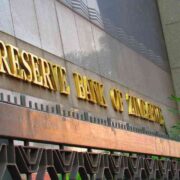Professor Mthuli Ncube, Chairperson of the Committee of Ministers of Finance and Investment for the Southern African Development Community (SADC), has called for a significant reduction in regulatory fees, citing their detrimental impact on businesses across the region. His remarks were made during the recently held SADC Committee of Ministers of Finance and Investment meeting, where he emphasised that excessive regulatory fees are stifling economic growth and forcing companies to operate outside compliance to survive.
Professor Ncube, who also serves as Zimbabwe’s Finance Minister, revealed that in some sectors, businesses would not be viable if they fully adhered to regulatory requirements.
By Gamuchirai Mapako
“What we are noticing across our region is that regulatory costs are so high and are increasing the cost of doing business. As governments, we must slash these regulatory costs,” Ncube stated.
“We’ve done some analysis, for example I won’t say which sector where we found that if the players were to comply with all our regulatory costs, none of them would be in business. They’re only in business because they are not complying with regulatory requirements. So, really, this should be slashed”.
His comments highlight a growing concern among SADC nations where bureaucratic red tape and excessive fees are discouraging investment and pushing businesses into informality to avoid compliance costs.
Prof Ncube also pointed out that regulatory costs are often misunderstood by the public, who confuse them with taxes.
“These are not taxes. These are agency fees for overregulation,” he clarified.
This distinction is crucial as governments face increasing pressure to reduce the tax burden on citizens while also maintaining necessary regulatory frameworks. However, when agency fees become too burdensome, they can have the same economic impact as taxes, discouraging investment and increasing operational costs for businesses.
The debate over regulatory costs gained renewed attention after SpaceX’s Starlink, the satellite internet service provider, introduced a $5 “regulatory fee” for its Zimbabwean subscribers. The company stated on its website:
“This fee is included to account for the higher than average regulatory fees in Zimbabwe.”
This issue has become a point of discussion about whether Zimbabwe and by extension, other SADC nations are imposing excessive fees that ultimately get passed on to consumers. Starlink’s decision to explicitly attribute the charge to regulatory costs has put a spotlight on how such fees can deter foreign investment and increase the cost of essential services.
High compliance costs discourage formal business operations, pushing companies into the informal sector where they avoid regulations but also miss out on legal protections and access to formal financing. Foreign investors may be deterred by complex and expensive regulatory environments, opting for regions with simpler processes.
Consumers also ultimately bear the cost, as businesses pass on regulatory fees through higher prices.














Comments